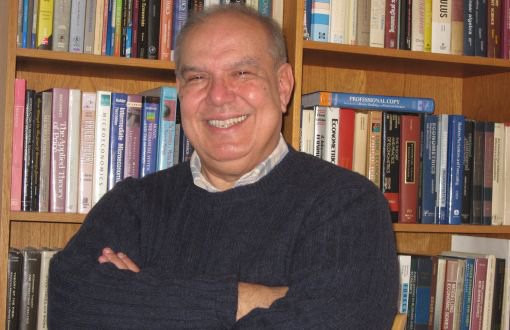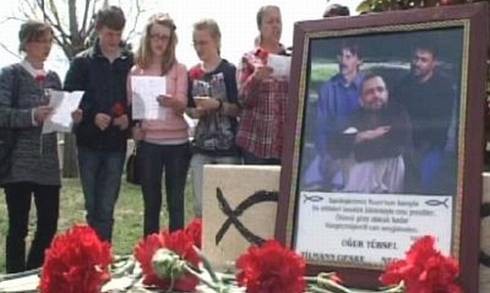
Authorities reassigned two judges and two prosecutors in the case of the Zirve Publishing House Massacre during the 41st hearing of the trial. The decision constitutes an intervention in a fair trial, according to case lawyer Erdal Doğan, while his colleague Ali Koç offered a different view on the matter.
Whether it was done or purpose or not, changing the judges and prosecutors in a case whose file contains 500 folders is tantamount to intervening in the trial, lawyer Doğan told bianet, adding that the decision represented a serious mistake in terms of ensuring a fair and effective trial.
"I do not think this change is directly related to the case. Such changes do occur within the judiciary from time to time, but there was no need to make such a change in this particular trial either," lawyer Koç said in turn.
Assailants slit Tilman Ekkehart Geske, Necati Aydın and Uğur Yüksel's throats in the Zirve Publishing House, a bible printing firm, in the eastern province of Malatya on April 18, 2007. Geske was a German citizen, while Aydın and Yüksel were Turkish converts to Christianity. Officials later merged the case with the Ergenekon investigation.
Ergenekon is an alleged gang that aims to topple the government of the ruling Justice and Development Party (AKP) by fomenting chaos and unrest in society.
A total of 19 suspects, including retired General Hurşit Tolon, former Malatya Gendarmerie Regiment Commander Mehmet Ülger, Major Haydar Yeşil and Ruhi Abat, an academic at İnönü University, began standing trial in the case on Sept. 3 in the Malatya Third High Criminal Court, following the completion of the second indictment.
Gen. Tolon, who stands accused of being the leader of a terrorist organization, is currently not attending the trials, however, as he has a medical report that exempts him from going to court for 10 days. The hearings are set to last until Sept. 14.
"Mistake upon mistake"
Lawyer Doğan argued that reassigning the judges and prosecutors runs counter both to the general principles of the legal practice as well as to the Administrative Procedure Law.
"The 250th article in the Third Judicial Reform Package says 'commissioned judges and prosecutors will conclude the trials they are to oversee.' These members and prosecutors are under such obligations. To say that they were reassigned in accordance with the 10th article of the Anti-Terror Law amounts to committing one mistake after another... It is possible to rectify this, however. The former judges and prosecutors could continue overseeing the case through a decision of the HSYK (Supreme Board of Judges and Prosecutors)" lawyer Doğan said.
Lawyer Doğan also agreed with Sezgin Tanrıkulu, the deputy leader of the main opposition People's Republican Party (CHP,) who recently pointed out in an interview he gave to the daily Taraf that the Susurluk case suspects had also received the minimum sentences possible after the replacement of the judge.
Doğan said he could guess the answer the Minister of Justice would give to Tanrıkulu regarding a Parliamentary question he is set to pose:
"The minister will say the judges and prosecutors were reassigned in accordance with the 10th article of the Anti-Terror Law. The [Third Judicial] amendment package, however, says the judges and prosecutors who are on this case are obliged to complete the relevant investigation and the proceedings. The same also goes for the Ergenekon and the Balyoz ("Sledgehammer") cases," he said.
New court staff to examine the files
"The prosecutors who were running this case until now and the judges in the court delegation who got reassigned knew the file. Now, the incoming judges and prosecutors will [have to] examine and learn the case file," said lawyer Ali Koç.
"This is not a case that requires outside political intervention. Members of the court had also been reassigned elsewhere before. There is no one in the court delegation left from the time the trial had first begun. No trial in Turkey ends with the same delegation that it started with anyway, save for some cases in big cities," he added.
"Individuals stand trial while institutions stay put"
Koç also referred to the broadening of the investigation so as to include other suspects beside those who actually committed the murder as a "a positive but inadequate step."
"The people who committed the murder had been caught before, and they were tried in consequence. The prosecution then claimed the existence of a group working on missionary activities and which also included Gen. Hurşit Tolon and the former Malatya provincial gendarmerie commander, and it subsequently filed a suit against them," Koç said.
"Such deep structures do not disappear with these trials. Other institutions and persons are probably in charge of the same type of activities now. Authorities refrain from laying their hands on the deep forces within the state. The Special Forces Command, for instance, is still intact. The Police Headquarters' Bureau C in the Department of Intelligence that is tasked with monitoring non-Muslims is still intact. Individuals do stand trial, but institutions just stay put," he added. (EKN)





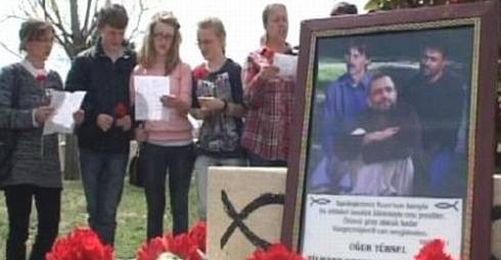

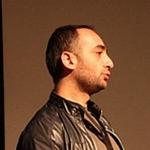
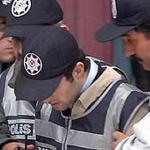
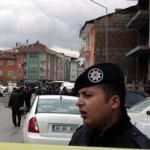
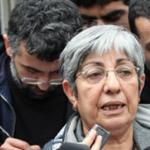

.jpg)


